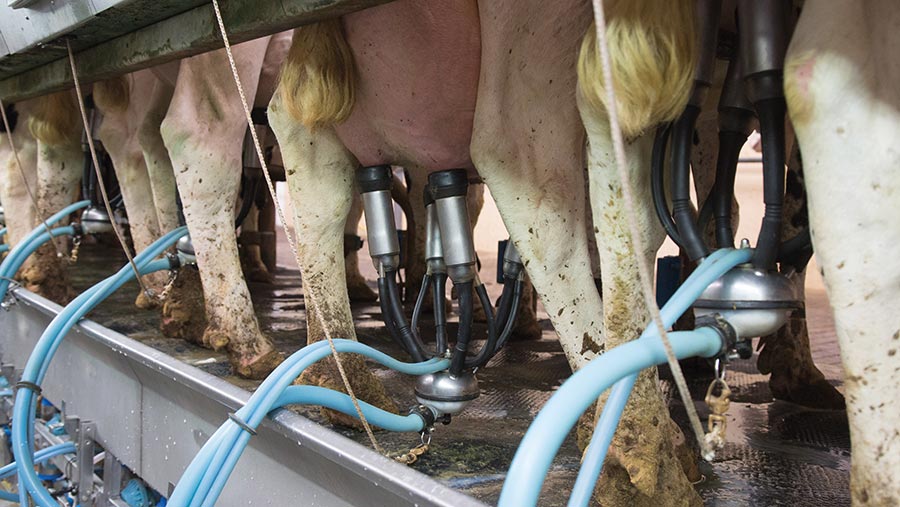Energy support scheme: The details for farm businesses
 © Tim Scrivener
© Tim Scrivener Farm business owners should still shop around to find the best energy deal and seek advice to clarify how the government’s support scheme works, experts have warned.
The energy market has been in a volatile state for more than a year now, due to a significant French gas interconnector outage in September 2021, and the situation has only worsened since the Russia-Ukraine conflict began in February.
With those who need to renew their energy contract this autumn facing cost increases of up to 400% because of the ongoing crisis, the government’s announcement in September of a support package for businesses was welcomed.
See also: Tips to keep farms profitable in face of rising inputs
However, experts have said misinformation about the scheme is spreading rapidly, and businesses need to be aware of what support is available for their specific circumstance, as well as any exclusions.
Energy Bill Relief Scheme
- The scheme will run from 1 October 2022 to 31 March 2023 and be reviewed in January 2023
- Customers do not need to take action or apply to the scheme to access the discounts
- Last week’s wholesale costs were about 60p/kWh for electricity and 18p/kWh for gas (although this is changing frequently)
- Under the government’s scheme, these wholesale prices will be capped at 21.1p/kWh (electricity) and 7.5p/kWh (gas)
- If your contract has ended or is due to end soon, government advice is to set up your contract as normal
Source: Energy contract specialist Beaconplus
Scheme details
The government confirmed last week that it will provide a significant discount on wholesale gas and electricity prices for UK businesses from 1 October to 31 March 2023.
This week, ministers confirmed plans to expand the scheme to also support businesses that signed supply contracts as early as 1 December 2021.
The wholesale energy price will be capped at £211/MWh (21.1p/kWh) for electricity and £75/MWh (7.5p/kWh) for gas. These compare with wholesale market estimates this winter of 60p/kWh for electricity and 18p/kWh for gas.
Businesses generally have bespoke long-term fixed contracts that can expire at any point in the year.
The support package will apply to fixed-price contracts agreed on or after 1 December 2021, as well as to deemed, variable and flexible tariffs and contracts, and businesses will see the discount from their November bill, if billed monthly, according to NFU Energy.
For businesses on fixed-price contracts, provided that the wholesale element of the price the customer is paying is above the new government price, their per-unit energy costs will automatically be reduced by the relevant p/kWh for the duration of the scheme.
Those on default, deemed or variable tariffs will receive a per-unit discount on energy costs, up to a maximum discount of £345/MWh (34.5p/kWh) for electricity and £91/MWh (9.1p/kWh) for gas.
However, the price cap will not cover the whole rate businesses pay for the cost of their energy, explained Jodie Hisgett, head of commercial sales at NFU Energy.
“Wholesale energy costs only make up about 40% of the end p/kWh unit rate,” she said. “Additional charges will still be added to your unit rates as they are in the current way, and these are not affected by the price cap.”
What to consider
- Exclusions – Businesses that use gas or electricity to generate power and sell it back into the grid can’t benefit from the discount. Any activity of this nature would require refunds to the government and risks potential penalties
- Don’t assume that it is unimportant to shop around. With such a big proportion of the cost you pay still falling outside of the relief period and with little transparency, comparing contract prices is still greatly important
- The energy announcements have been vague and confusing at times, and there is a lot of misinformation and scammers out there. If you’re unsure of anything, seek advice
Source: Jodie Hisgett, NFU Energy
CLA senior economist Charles Trotman said: “The past 12 months have seen some troubling times for both rural businesses and rural communities.
“Although the recently announced government support is a significant help and introduces much-needed certainty, it is time limited and needs to be extended beyond April 2023, for at least two years.
“Looking at the price trends for wholesale gas, the past month has seen prices fall by half from 600p/therm in August to about 300p/therm at the beginning of October.
“However, we are likely to see that trend reverse as businesses face the winter months, where demand will inevitably increase.
“We also need to remember that there is a significant number of rural homes and businesses that are off the gas grid, relying on heating oil and LPG.
“The government has said it will step in to support the market, but detail is desperately required.”
